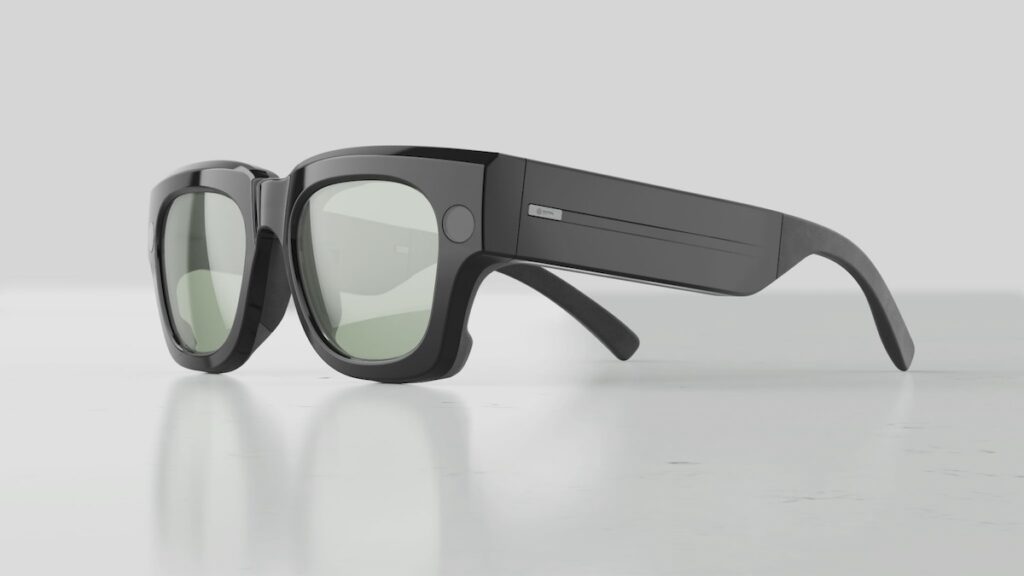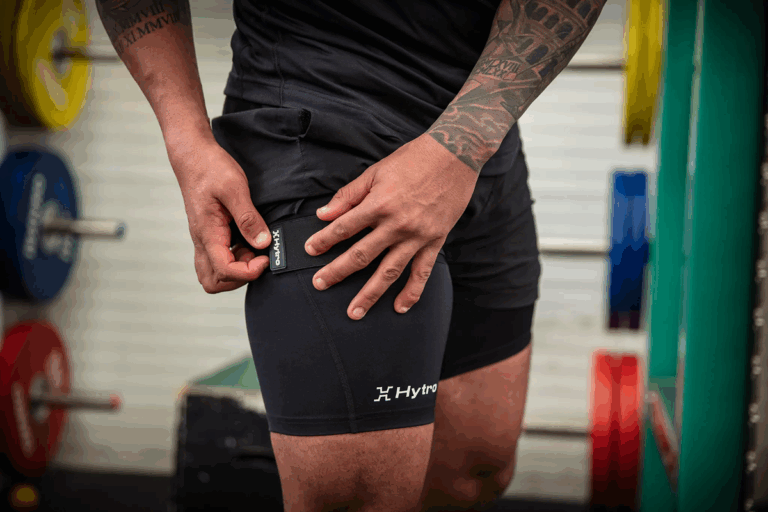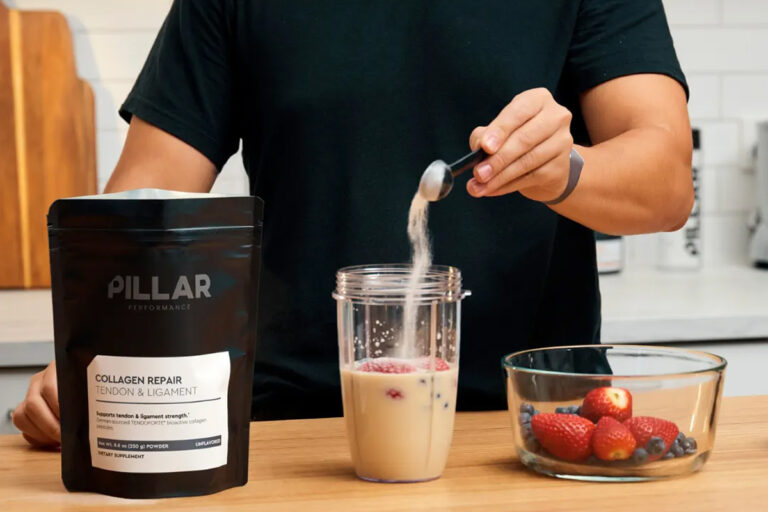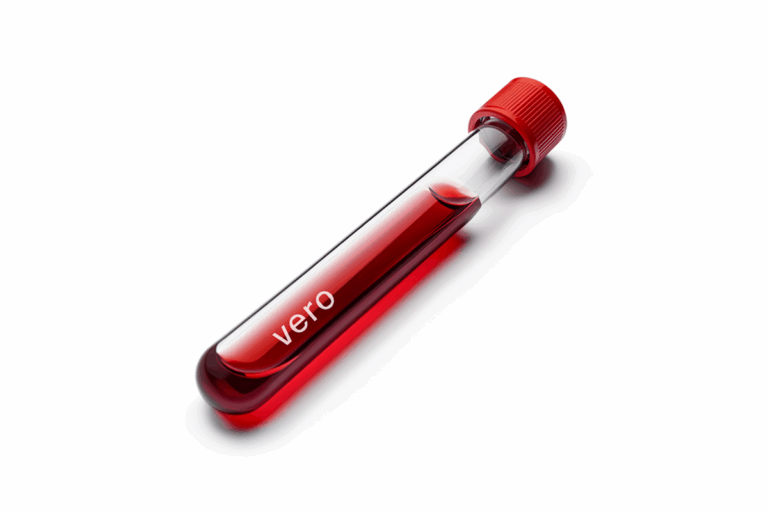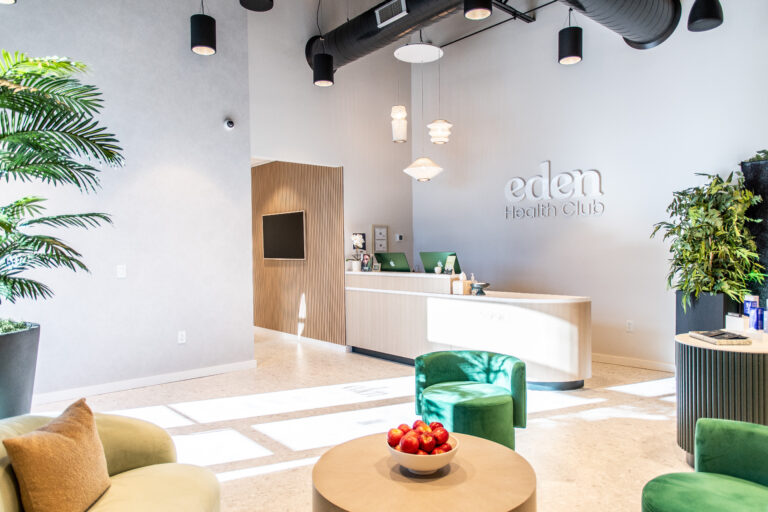In this Q&A, you’ll hear from Steen Strand, CEO of Emteq Labs, creator of health-tracking smart glasses. Steen shares how his experience in Snap’s AR eyewear division led to scaling a platform translating facial expression and physical biomarkers into insights for emotional and nutritional well-being.
Tell us about Emteq Labs.
Steen Strand: Emteq Labs has spent the last decade developing advanced technology for sensing facial movements and emotion.
After years of research and development, we’re ecstatic to finally announce Sense, the world’s first emotion-sensing eyewear, and begin shipping our Sense development kit to commercial partners this winter.
Using optical sensors inspired by a fly’s vision, our glasses detect facial expressions with 97% accuracy. Our proprietary AI/ML algorithms analyze this data to give real-time insights into their emotional and physical states, including mood, eating habits, posture, attention, physical activity, and more.
Sense opens up a whole new world of understanding for health and wellness, allowing users to look inward. Going deeper than step count or calorie expenditure, Sense accesses a new suite of digital biomarkers applicable across preventative medicine and for medical research.
For example, the glasses can detect when you’re chewing and how quickly you’re eating. At the same time, a built-in downward-facing camera logs food, calories, and nutrition. Together, this data gives a comprehensive understanding of your eating behavior, addressable by the user or a care team.
What led you to pursue this opportunity?
SS: I first met Emteq Labs’ founder, Charles Nduka, while I was working as the head of the AR eyewear division at Snap and was immediately drawn to the work he was doing. A former facial paralysis surgeon, he started Emteq Labs to improve how people interact with the world around them through facial expression and emotion sensing technology.
In joining Emteq this year, I’m pairing my background in eyewear and product design with Charles’ medical expertise to take Sense to the next level. We’re taking big steps toward our mission of providing people with the essential information they need to address two of the world’s most critical health concerns.
Up until now, wearables like Fitbit, Oura, Apple Watch, and more have targeted two pillars of wellness: physical fitness and sleep. What has been missing is insight into other key pillars of wellness: diet and emotions.
With over 1B people living with obesity and about 970M suffering with a mental health disorder worldwide, we need real-world data to understand and address these issues, and that’s where Sense comes in.
How did you turn your idea into a company?
SS: Early days establishing a deep understanding of facial expression sensing led to technology built upon that foundation.
Continuing to work closely with research partners and experts, we’ve been building credibility with 27 issued patents and 28 peer-reviewed publications that back our technology, including validations for Sense’s ability and accuracy in analyzing eating behaviors, as well as detection of depression.
This year, our focus has been on scaling up in preparation for our commercial launch in December, punctuated by our announcement of the Sense glasses in October. As we onboard more commercial partners, we’re constantly tailoring our technology to provide them with the data they need for their individual use cases.
How big can this get?
SS: A majority of people already rely on eyewear to enhance their vision or help them perform specific tasks. Our technology builds upon this principle, making the barrier for adoption very low and our addressable market large.
We’re already seeing adoption of smart eyewear with products like Ray-Ban Meta for very casual use cases, so imagine what adoption could look like for smart eyewear that really improves people’s lives.
Meanwhile, the addressable market for diet and emotion wearables is massive — at least as large as the market for sleep and fitness wearables. While we’re focusing on one thing at a time, we think these markets are just the tip of the iceberg on where our tech is relevant.
How do you reach your core customer?
SS: As we continue to evolve and refine the technology behind Sense, our core customers are currently research partners, mostly in the health and wellness spaces.
Our clients fall into two broad groups: Firstly, those who want more accurate, real-world objective data on behavior change — typically makers of products and services who have issues of subjectivity and recall bias with traditional survey methods.
Secondly, we’ve been approached by those who want to passively measure whether their product or service is working, such as health professionals, trainers, coaches, content creators, and/or developers.
Sense glasses have wide-reaching applications, which is why we’re working alongside expert practitioners and maintaining a B2B open platform. Our vision is for Sense to be used by dietitians, therapists, and other experts who can help guide patients in lifestyle changes based on data from the glasses.
We are at the beginning of a long journey. Today, the glasses weigh only 62g but are larger than your typical eyewear, so they are best suited for high-need use cases or those that involve short wear times.
As the technology is optimized—which will happen fairly quickly—the glasses will shrink to a size that’s indistinguishable from ordinary eyewear, a foundational improvement unlocking broad use cases across wellness, medicine, sentiment, and augmented reality.
What’s next on the roadmap?
SS: Our next big milestone will be the official launch of our Sense development kit to commercial partners this winter. This is the next stage in Emteq Labs’ journey, as we evolve from a research-focused company into a scalable platform for commercial use cases.
We’re looking forward to sharing how our partners are putting our platform to work and the amazing insights being generated.
We’ll also be looking to solidify our resources as we advance our platform on multiple fronts. As part of this, we’ll be pursuing another funding round next year.
Anything else you’d like to share with readers?
SS: When talking about wearable technology and smart glasses, data protection is a key part of the conversation.
Our platform adheres to the strictest standards when it comes to the privacy of personal health information, and users have full control over their data and whether they want it shared with researchers and clinicians. We keep everything safe through encryption, secure cloud infrastructure, and access controls, and we allow users to delete or update their data at any time.
This fully transparent data protection philosophy will always be top of mind for Emteq as we look to the next phases of Sense.
If you’re interested in having your company featured in our Q&A series, send an email to team@fitt.co.
